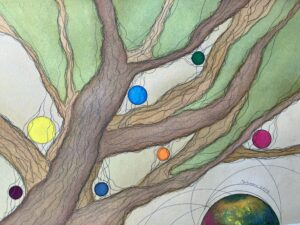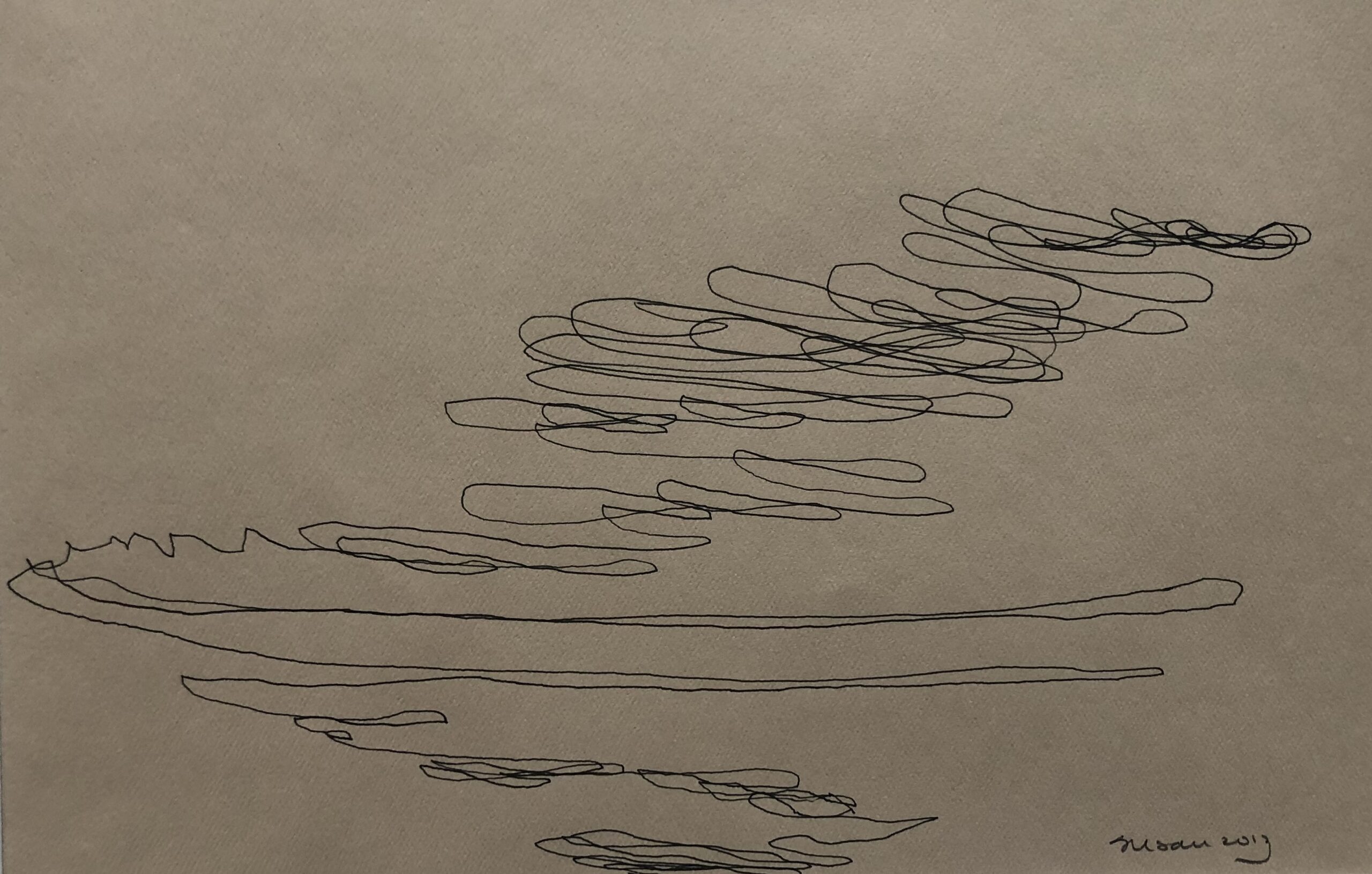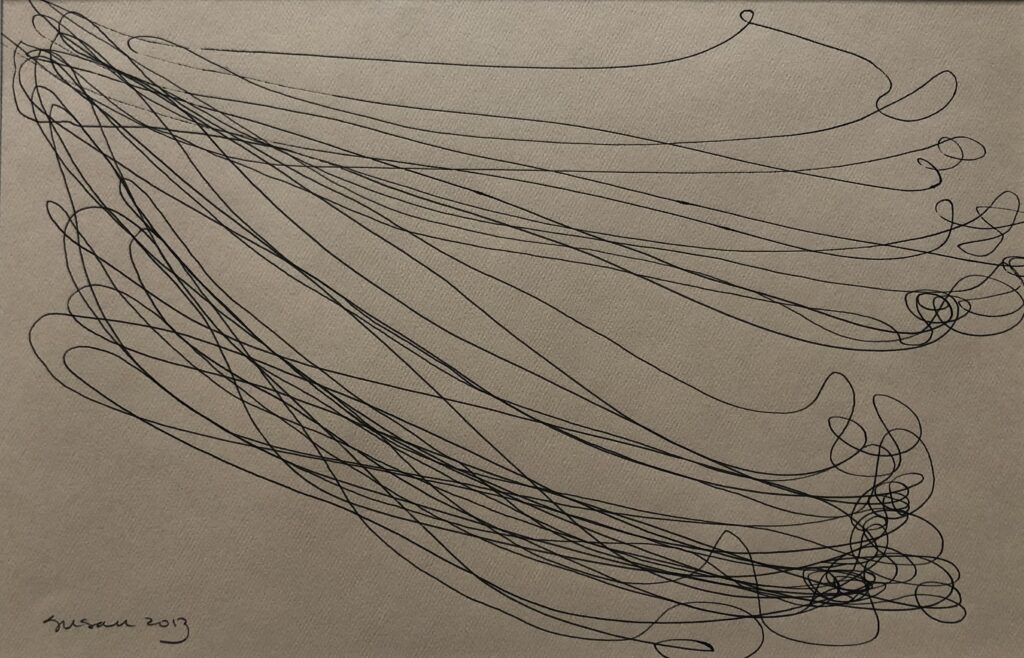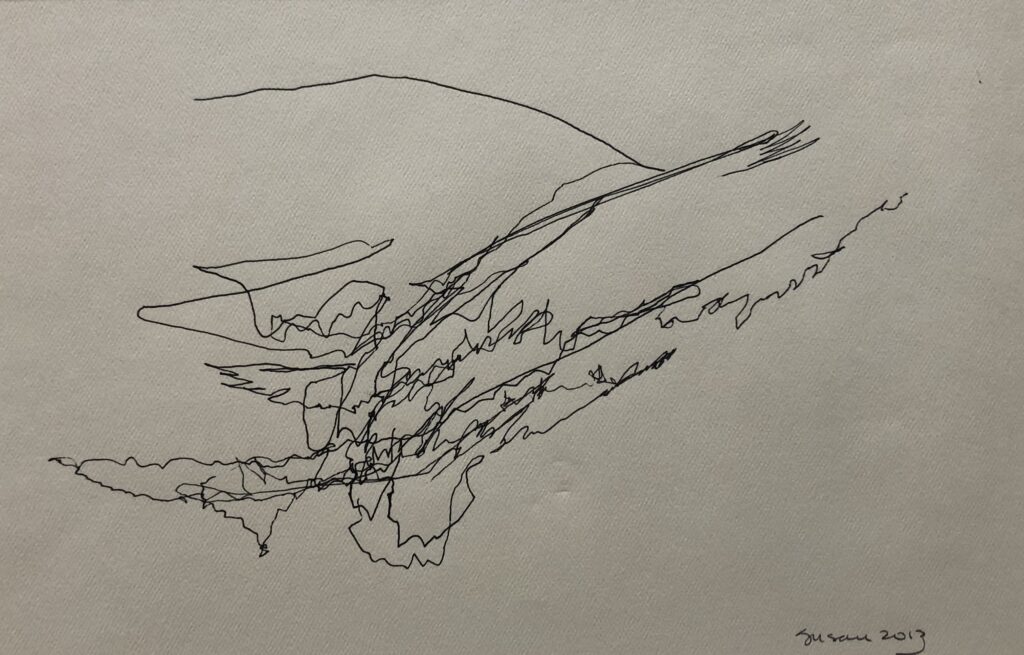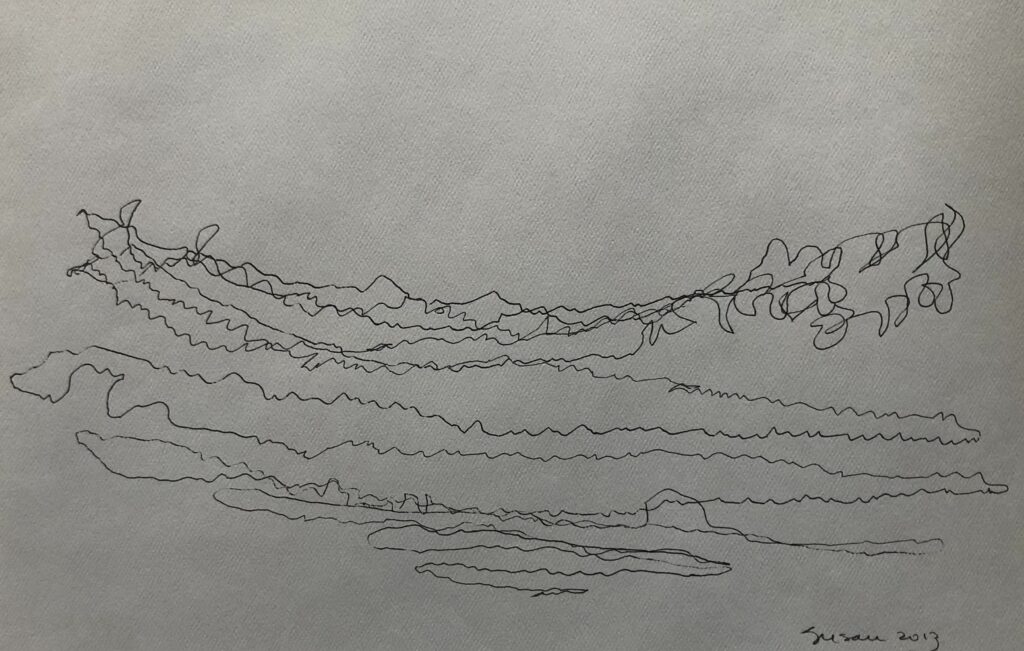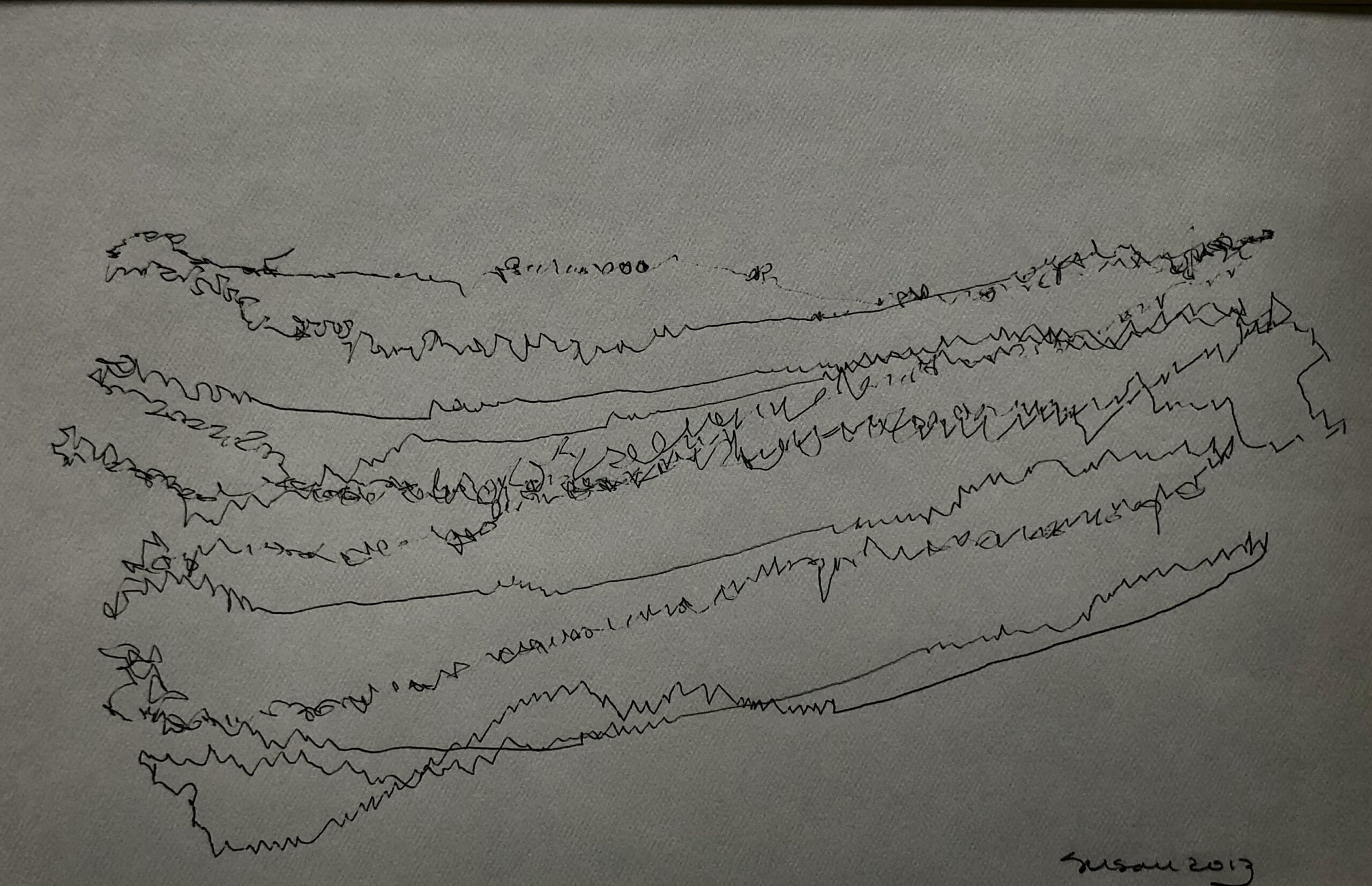
“Duet Three” (watercolor)


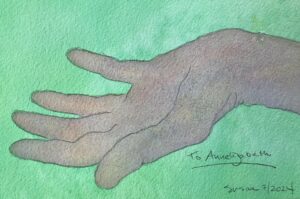
I never set forth a five- or ten-year plan for my career. I don’t have a bucket list. Don’t make to-do lists either. It’s not that I’ve never had goals, or that I’ve wandered aimlessly through a life devoid of ambition or mileposts. It’s just that … my approach has mostly been to do what needs to be done when I see that it needs to be done. To assess what comes to me and move ahead accordingly. To put one foot in front of the other, foolishly or confidently or blindly assuming that each step would lead me to the next, and that all would be well.
Is this attitude why I resist the idea of a leaving a specific legacy about myself — a summary of what my life has meant? More precisely, what I hope it’s meant for the people coming after me? A message for others?
Looking back on my life, I can see that things have generally worked out — almost in a way that I could claim that I planned. For what it’s worth, I am happy. Would I be happier if I had fulfilled a certain career plan or have a bucket full of checked-off items, or if I’d ended every day with a piece of paper showing lots of cross-outs?
I may not have made lists for myself, but — believe me — there was plenty of assessment and measurement going on, growing up and through adulthood. There was always someone — in my family, my schooling, my peer groups, my church, my career — hinting or telling me outright — or giving me that silent lingering once-over glance. Letting me know where I stood. Hard not to internalize all that judging, which may be why I have avoided externalizing it, putting it down somewhere where it could be judged.
I’m thinking now of the Celebration of Life event for a close friend who died several years ago. Throughout, I was emotionally mute and unable to speak a word about my friend. But listening to the eulogies — which were beautiful and loving and simple — I realized that I was hearing my friend’s legacy in those words of reminiscence. She didn’t write her vast and unique legacy. Others did, because of the way she had lived her life.
That’s how I want it to be for me.
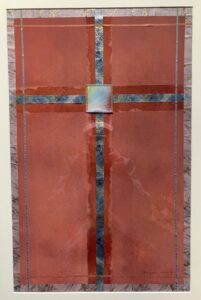
My watercolor “Petunias for Dad” was featured in the weekly newsletter published by Catholic Artist Connection (the August 5, 2024 issue). Scroll down to the July 5, 2024 entry on this blog to see the image.
I am delighted that I am now part of a regular feature of the Catholic Artist Connection’s blog: interviews with artists, conducted via an emailed questionnaire. The answers that I submitted — to questions about my ID as a Catholic artist (an artist who is Catholic?), where I find support and fulfillment as an artist, my spiritual practices and more — are here, along with a selection of my paintings:
